Are you looking for a natural remedy to alleviate pain, anxiety or inflammation? If so, you might have heard of both hemp oil and CBD. While they come from the same plant – cannabis – they differ in their composition and effects. One question we hear a lot is: does hemp oil have CBD? The answer is yes…and no! To help you understand the relationship between these two substances, as well as their benefits and side effects, we’ve put together this comprehensive guide. Whether you’re new to the topic or already familiar with it, keep reading to discover everything you need to know about hemp oil and CBD.
What is hemp oil?
Hemp oil is a type of oil that comes from the seeds of the hemp plant. It has been used for centuries as a natural remedy for various ailments, including pain, inflammation, and anxiety. Hemp oil contains essential fatty acids such as omega-3 and omega-6 which are beneficial to human health.
One misconception about hemp oil is that it causes psychoactive effects like marijuana due to their similar appearance. However, unlike marijuana, hemp plants contain only trace amounts of THC – the compound responsible for getting people high.
Hemp oil can be consumed in a variety of ways. One way is by ingesting it directly or adding it into food products like smoothies or salad dressings. Another way is through topical application where you apply it directly onto your skin.
Hemp oil offers numerous potential health benefits with little risk of side effects making it an increasingly popular alternative treatment method among medical professionals and consumers alike.
What is CBD?
CBD, or cannabidiol, is a non-psychoactive compound found in the cannabis plant. Unlike THC (tetrahydrocannabinol), which is the primary psychoactive component of marijuana, CBD does not induce any mind-altering effects.
CBD has gained popularity due to its potential therapeutic benefits. It’s believed to have anti-inflammatory and pain-relieving properties, making it a popular alternative for those seeking natural remedies for chronic pain conditions such as arthritis and multiple sclerosis.
In addition to its potential physical benefits, CBD has also been studied for its potential mental health benefits. Some research suggests that it may help with anxiety disorders like social anxiety disorder and post-traumatic stress disorder (PTSD).
It’s important to note that while CBD shows promise as a natural remedy, more research needs to be done in order to fully understand its effects on the body. Additionally, it’s always best to consult with your healthcare provider before incorporating any new supplement into your routine.
The benefits of CBD
CBD has been found to have numerous health benefits, making it a popular natural remedy for many ailments. One of the main benefits of CBD is its ability to reduce anxiety and depression. Studies have shown that CBD can help alleviate symptoms associated with both conditions by interacting with serotonin receptors in the brain.
Another benefit of CBD is its anti-inflammatory properties. This makes it an attractive option for those suffering from chronic pain or inflammation-related conditions such as arthritis. It has also been found to be effective in reducing acne due to its ability to decrease sebum production.
CBD may also be beneficial for those suffering from neurological disorders such as epilepsy and multiple sclerosis. In fact, one FDA-approved drug containing CBD called Epidiolex is used to treat seizures associated with these conditions.
In addition, some studies suggest that CBD could potentially help prevent cancer cell growth and even induce apoptosis (cell death) in certain types of cancer cells.
While more research needs to be done on the potential health benefits of CBD, current findings show promising results for treating various physical and mental ailments naturally.
The side effects of CBD
Like any other supplement or medication, CBD can produce side effects in some individuals. However, it is important to note that these side effects are generally mild and temporary.
One of the most common side effects of CBD is dry mouth. This occurs because cannabinoids affect saliva production in the body. While this may be uncomfortable, it is not harmful and can be easily remedied by drinking water or chewing gum.
In some cases, CBD may cause drowsiness or fatigue. This effect is more likely to occur when taking higher doses of CBD or if you are new to using it. It is recommended to start with a smaller dose and gradually increase until you find what works best for your needs.
CBD has also been known to interact with certain medications such as blood thinners, so it’s important to consult with your doctor before adding CBD into your routine if you are currently taking any prescription drugs.
While rare, some individuals may experience nausea, diarrhea or changes in appetite after taking CBD products. If you experience any adverse reactions while using CBD oil or other products containing cannabidiol (CBD), discontinue use immediately and speak with a healthcare provider.
It’s worth noting that many people consume hemp oil without experiencing any negative side-effects at all which highlights its safety profile overall
How to take CBD
CBD is versatile and there are various ways to consume it. The most common method of taking CBD is through oral ingestion, such as capsules or tinctures. Capsules are easy to take and come in predetermined doses, making them a convenient option for people on the go.
Another popular way of consuming CBD is by using topicals like creams, lotions or balms that can be applied directly on the skin. This method allows for targeted relief with minimal side effects and can be helpful for localized pain or inflammation.
Inhalation methods such as vaping or smoking may also provide quick relief but these methods have higher risks than other forms of consumption due to potential damage to lung health.
The appropriate dosage will vary depending on factors such as body weight, individual tolerance and concentration of the product. It’s recommended that users start with a low dose and gradually increase until they achieve desired results while monitoring any adverse reactions.
It’s important to note that each person’s reaction to CBD may differ so consulting with a healthcare professional before trying CBD is always advised.
The different forms of CBD
CBD can be consumed in various forms, depending on personal preference and the intended use. One common form of CBD is CBD oil, which can be taken orally or applied topically. Tinctures are another popular option that come with a dropper for precise dosing.
CBD capsules offer an easy way to take CBD without having to measure out doses or deal with the taste of oils. Edibles, such as gummies or chocolates, are also available for those who prefer a tastier method.
For those looking for targeted relief for specific areas of the body, topicals like creams and balms infused with CBD may provide localized relief. Vaping and smoking CBD flower is another option but should be approached with caution due to potential lung irritation.
It’s important to note that different forms of CBD may have varying onset times and bioavailability rates, meaning they may take longer to kick in or not be as effective as other methods. It’s always best to consult with a healthcare professional before trying any new form of CBD consumption.
Conclusion
Hemp oil and CBD are two different substances found in the hemp plant. While both have potential health benefits, it’s important to understand that only CBD has therapeutic properties. Hemp oil, on the other hand, is primarily used for cooking and as a carrier oil.
If you’re interested in trying out CBD for its potential health benefits, it’s important to speak with your healthcare provider first to determine if it’s safe for you. Additionally, be sure to purchase high-quality products from reputable companies that provide third-party lab testing results.
While more research needs to be done on the effects of CBD on various health conditions, early studies show promising results. As always with any supplement or medication regimen changes consult your doctor before starting anything new!

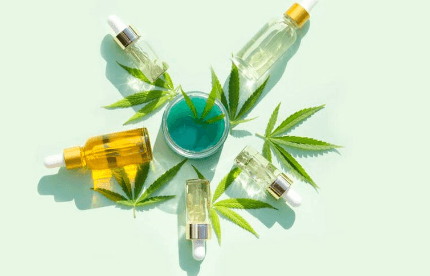
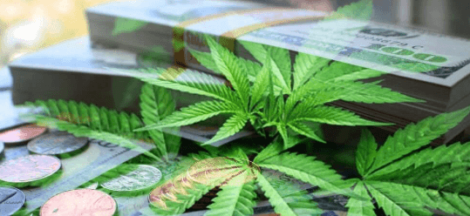
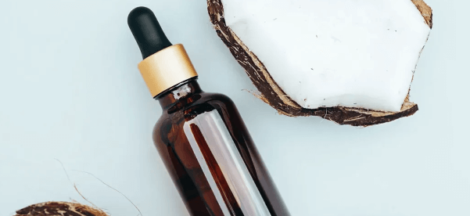
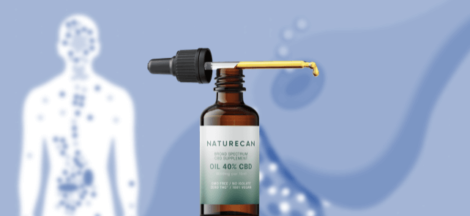
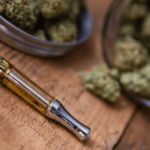 The Ultimate Guide: How to Vape CBD Oil for Beginners
The Ultimate Guide: How to Vape CBD Oil for Beginners